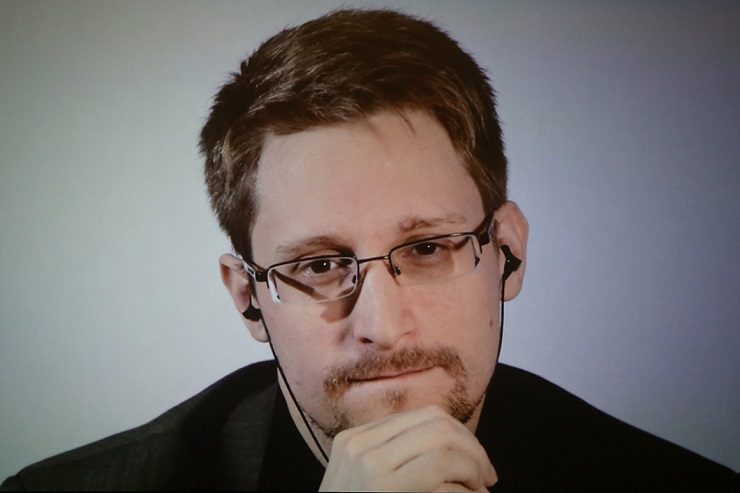Edward Snowden’s 2013 leak of US National Security Agency (NSA) information helped the world see more clearly what the US – in its current manifestation – really is. Its extensive, abusive surveillance network targeted friends and foes alike around the globe but also pointed inward at America’s own population. It provided the clearest picture to date of the methods and means used by what many call the “Deep State” to maintain power internationally as well as domestically.
The US – which prides its self-appointed title of leader of what it calls a “rules based international order” – had broken all the rules.
Instead of celebrating a man who offered a rare opportunity to clean house and begin rebuilding confidence and trust between the US government and the American people as well as between the US and the world abroad – a process of doubling down began instead.
It is a process that continues even to this day.
Clearly, Donald Trump has failed to pardon Snowden and it’s unlikely that his successor would actually do this. Moreover, there are still those in the US media who attempt to build a case against such a pardon nonetheless.
An opinion piece written by Rich Lowry appearing in Politico titled, “Mr. President, Don’t Pardon Edward Snowden,” would claim:
If the former NSA contractor had been a genuine whistle-blower, he could have pursued concerns about the NSA program through lawful avenues, instead of fleeing the country.
But this assumes that in the US there exists such “lawful avenues” in the first place. Snowden himself has claimed that his first course of action was actually attempting to find and travel down such avenues – but found none.
Lowry in Politico also claims:
The Snowden disclosures were much more wide-ranging than the NSA program, in fact so wide-ranging that it’s almost impossible to keep track. As Harvard law professor Jack Goldsmith asked, in a piece at the website Lawfare opposing a Snowden pardon by Barack Obama, why did Snowden’s devotion to the Constitution require him to disclose details of how we spy on other countries, how we cooperate with Sweden and Norway to spy on Russia, or an NSA program called MasterMind to respond to cyberattacks?
Yet US foreign policy toward Russia – for example – is one of belligerence, aggression, subversion, economic warfare, covert terrorism, semi-cover proxy war, and hybrid warfare. These are policies the US wields against many nations around the globe- policies aided by the massive and abusive surveillance methods exposed by Snowden.
These are policies problematic toward the Constitution, the will of the American people who generally seek to avoid wars, and toward international law.
The information Snowden took with him serves to shed much needed light on all aspects of US foreign policy. The term “national security” used by people like Lowry to describe what he claims Snowden’s actions threatened is dishonest. US national security faces very few real threats – surrounded by two oceans on either side of its east and west coasts and with friendly nations to its north and south.
What Lowry is actually most likely referring to is US “interests” which entails the encroachment upon and violation of the national security of other nations – nations like Afghanistan, Iraq, Libya, Syria, Yemen, Ukraine, and even nations like Iran, Russia, and China who face the constant economic, political, and military pressure of the US.
That not only is a man who held a mirror up to Washington and the policies coming out of it exiled overseas – but that there are those still in the US dedicated to poisoning the world against him – says much about where the US now. It is a system in irreversible decline. It is a system that refuses to look in the mirror – and as such – is a system unable to assess or rectify any of the ailments that would – if they could – stare back.
Snowden’s exile is one of many metrics we can use to measure America’s decline – and any possible, genuine pardon of Snowden could – if it ever occurred – might signal the emergence of a new, more reasonable America – one that might not only right the wrong that put Snowden in exile in the first place – but one that might be capable of addressing the problems that spurred Snowden to become a whistleblower in the first place.
Brian Berletic is a Bangkok-based geopolitical researcher and writer, especially for the online magazine “New Eastern Outlook”.

